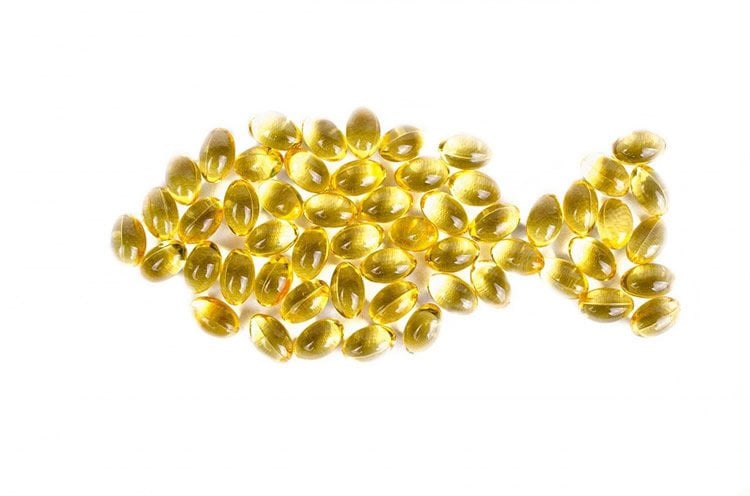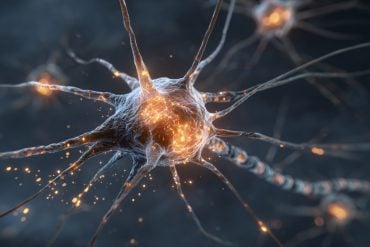Summary: Researchers from NTNU find new evidence of how omega 3 fatty acids can dampen inflammatory reactions in the body.
Source: Norwegian University of Science and Technology.
Omega-3 supplements may help slow the development of diseases like cancer, Alzheimer’s and multiple sclerosis.
Omega-3 fatty acids, which we primarily get through eating fatty fish, have long been thought to be good for our health. Many dietary studies have suggested that high intake is associated with a reduced risk of various disorders. Clinical trials have also shown beneficial anti-inflammatory effects in patients taking omega-3 supplements.
Recent research from NTNU supports previous discoveries, and has also found new, useful effects of omega-3 supplements and how these lipids dampen harmful inflammatory reactions in the body.
Effects little known
Despite numerous published dietary and clinical studies, we still don’t fully understand how omega-3 fatty acids affect our cells and if this varies from person to person, between healthy and ill individuals, or whether the mechanism of action varies in different tissues and cells. What we are most sure of is that omega-3 fatty acids can dampen inflammatory reactions. Inflammatory reactions are very important in combating infections, but they can be harmful if activated too strongly or in the absence of bacteria and viruses, like in autoimmune diseases and organ transplants.
Macrophages, which are immune cells that live in all tissues and organs, play a key role in coordinating inflammatory reactions in the body and monitor everything that happens in our tissues. The macrophages convert the information they obtain through various sensors or receptor on their surface to secretion of various hormone-like signal substances that control all parts of inflammatory reactions.
Inflammation can be harmful
We have increasingly become aware that macrophages can be more or less potent in activating inflammatory reactions. So-called sterile inflammatory reactions, such as autoimmune diseases, are often directly harmful.
The ability of macrophages to stimulate inflammatory reactions depends on processes within the macrophage.
Autophagy is one of the processes within macrophages that is important for whether a macrophage is calm or hyperactive. Autophagy (meaning “self-eating”) is a key process for degradation of dysfunctional or unnecessary proteins and other components within our cells.
In the last few years, we’ve learned a lot about how important this process is, say the researchers. The Nobel Prize in Physiology or Medicine 2016 was given to Yoshinori Ohsumi for his discovery of the key genes that control autophagy.
Autophagy is constantly going on in all cells and increases if the cells are starving or injured. We hypothesized that omega-3 fatty acids could dampen inflammatory reactions by elevating autophagy in macrophages. If so, we surmised that this effect might change the signal transformation in the macrophage and as a result, suppress activation of inflammatory reactions.
Activates self-cleaning process
By studying macrophages isolated from mice and humans, we found that the omega-3 fatty acids activated the autophagy and specifically affected some proteins that transform the signals from the environment. Furthermore, we found that omega-3 fatty acids dampened many inflammatory mechanisms within the macrophages, but especially reduced what is known as the type 1 interferon response.

The factor CXCL-10, which macrophages secrete as part of this interferon response following many types of stimuli, was the most clearly reduced factor after adding omega-3 to the cells.
We then examined blood samples from a clinical study in cardiac transplant patients where we knew that omega-3 supplements improved their clinical status. In these cases, we found that omega-3 fatty acids reduced the level of CXCL-10.
Supplements beneficial
Autophagy thus changes in macrophages in response to omega-3 fatty acids and specifically inhibits the secretion of inflammatory factors that belong to the interferon response, with CXCL-10 showing the clearest reduction. The results of this study are being published in the journal Autophagy.
These findings indicate that omega-3 fatty acid supplements may be particularly beneficial in patients who have conditions that are driven or aggravated by a strong interferon response and CXCL-10.
Our research group hopes that this one day will benefit patients with different forms of cancer, meningitis, multiple sclerosis, Alzheimer’s disease or jaundice. But we must emphasize that a lot of work remains.
The work being published by PhD candidate Jennifer Mildenberger and colleagues was conducted at CEMIR and at NTNU’s Department of Biomedical Laboratory Science in the Faculty of Natural Science. In addition, researchers in St. Louis, USA carried out important sub studies. The blood tests were from a clinical trial conducted at Oslo University Hospital.
Article author Geir Bjørkøy is a professor in the Department of Biomedical Laboratory Science at NTNU.
Article author Jennifer Mildenberger works for NTNU-Cemir.
Source: Jennifer Mildenberger – Norwegian University of Science and Technology
Image Source: NeuroscienceNews.com image is in the public domain.
Original Research: Abstract for “N-3 PUFAs induce inflammatory tolerance by formation of KEAP1-containing SQSTM1/p62-bodies and activation of NFE2L2” by Jennifer Mildenberger, Ida Johansson, Ismail Sergin, Eli Kjøbli, Jan Kristian Damås, Babak Razani, Trude Helen Flo & Geir Bjørkøy in Autophagy. Published online August 18 2017 doi:10.1080/15548627.2017.1345411
[cbtabs][cbtab title=”MLA”]Norwegian University of Science and Technology “Understanding How Omega 3 Dampens Inflammatory Reactions.” NeuroscienceNews. NeuroscienceNews, 24 August 2017.
<https://neurosciencenews.com/inflammation-response-omega-3-7369/>.[/cbtab][cbtab title=”APA”]Norwegian University of Science and Technology (2017, August 24). Understanding How Omega 3 Dampens Inflammatory Reactions. NeuroscienceNew. Retrieved August 24, 2017 from https://neurosciencenews.com/inflammation-response-omega-3-7369/[/cbtab][cbtab title=”Chicago”]Norwegian University of Science and Technology “Understanding How Omega 3 Dampens Inflammatory Reactions.” https://neurosciencenews.com/inflammation-response-omega-3-7369/ (accessed August 24, 2017).[/cbtab][/cbtabs]
Abstract
N-3 PUFAs induce inflammatory tolerance by formation of KEAP1-containing SQSTM1/p62-bodies and activation of NFE2L2
Inflammation is crucial in the defense against infections but must be tightly controlled to limit detrimental hyperactivation. Our diet influences inflammatory processes and omega-3 polyunsaturated fatty acids (n-3 PUFAs) have known anti-inflammatory effects. The balance of pro- and anti-inflammatory processes is coordinated by macrophages and macroautophagy/autophagy has recently emerged as a cellular process that dampens inflammation. Here we report that the n-3 PUFA docosahexaenoic acid (DHA) transiently induces cytosolic speckles of the autophagic receptor SQSTM1/p62 (sequestosome 1) (described as SQSTM1/p62-bodies) in macrophages. We suggest that the formation of SQSTM1/p62-bodies represents a fast mechanism of NFE2L2/Nrf2 (nuclear factor, erythroid 2 like 2) activation by recruitment of KEAP1 (kelch like ECH associated protein 1). Further, the autophagy receptor TAX1BP1 (Tax1 binding protein 1) and ubiquitin-editing enzyme TNFAIP3/A20 (TNF alpha induced protein 3) could be identified in DHA-induced SQSTM1/p62-bodies. Simultaneously, DHA strongly dampened the induction of pro-inflammatory genes including CXCL10 (C-X-C motif chemokine ligand 10) and we suggest that formation of SQSTM1/p62-bodies and activation of NFE2L2 leads to tolerance towards selective inflammatory stimuli. Finally, reduced CXCL10 levels were related to the improved clinical outcome in n-3 PUFA-supplemented heart-transplant patients and we propose CXCL10 as a robust marker for the clinical benefits mobilized by n-3 PUFA supplementation.
“N-3 PUFAs induce inflammatory tolerance by formation of KEAP1-containing SQSTM1/p62-bodies and activation of NFE2L2” by Jennifer Mildenberger, Ida Johansson, Ismail Sergin, Eli Kjøbli, Jan Kristian Damås, Babak Razani, Trude Helen Flo & Geir Bjørkøy in Autophagy. Published online August 18 2017 doi:10.1080/15548627.2017.1345411






